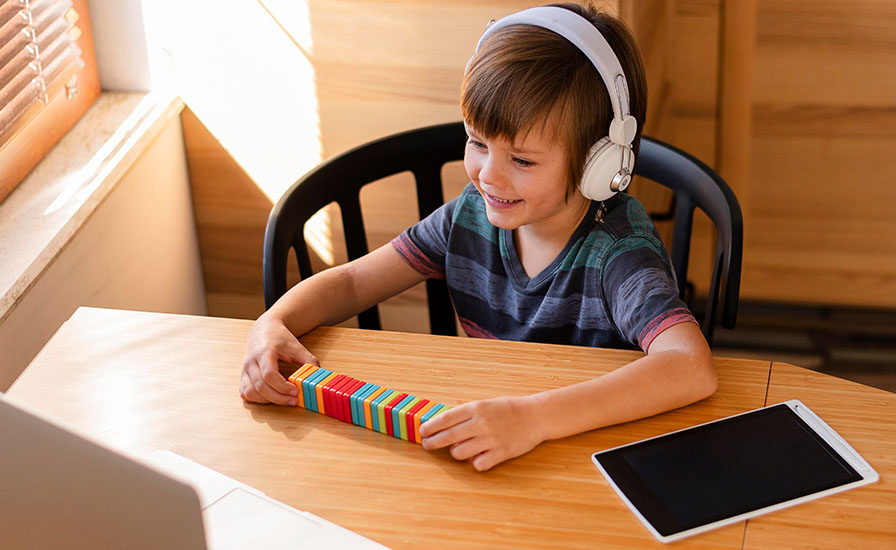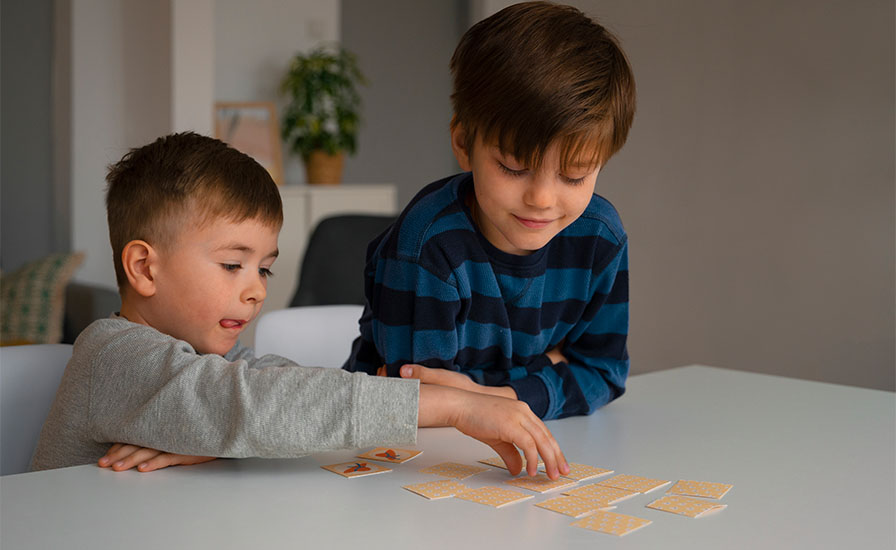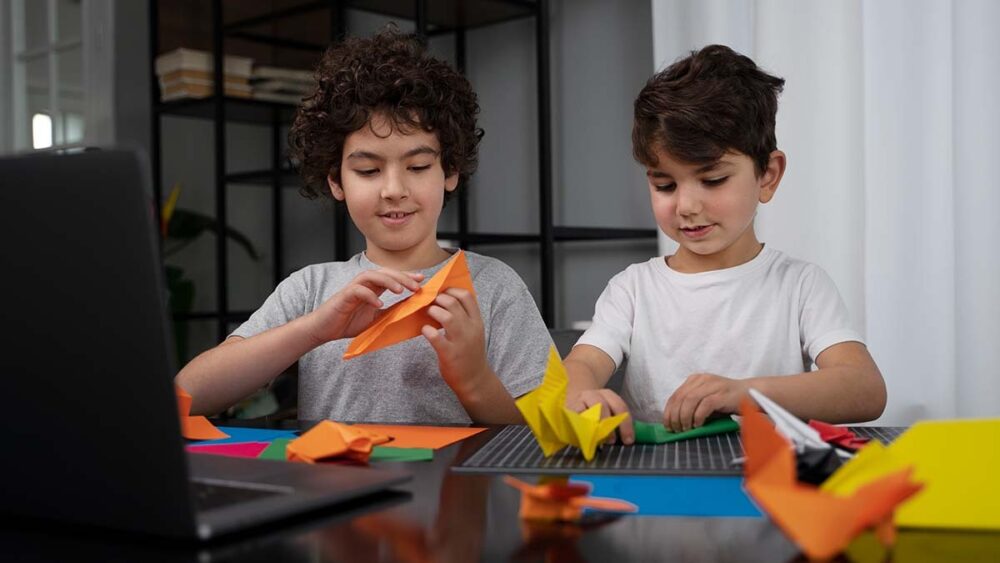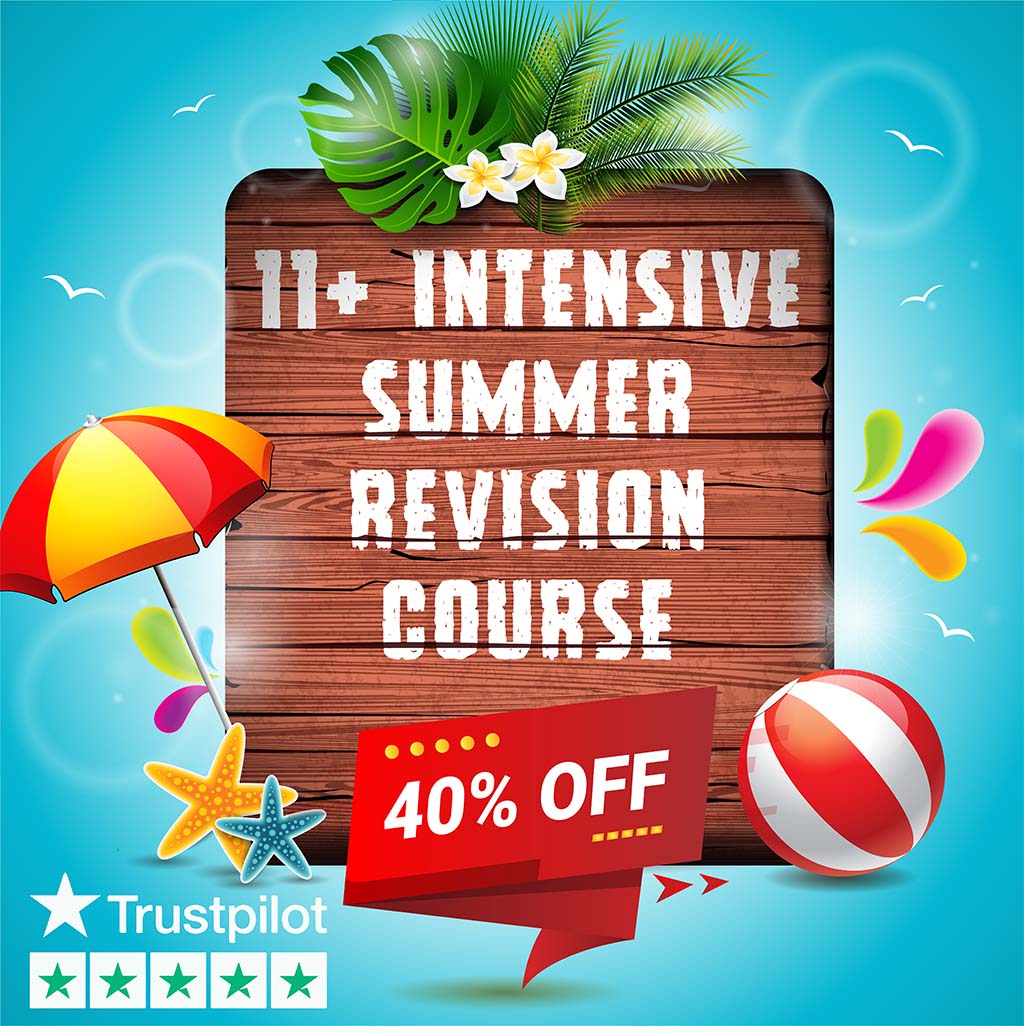You must be exhausted by preparing your child for the 11+ mock exam and the actual 11+. Roaming all over the internet and finding the best practise papers and resources can be overwhelming. Well, every parent feels tired during this preparation period. But it’s completely fine.

Here are the best educational games for you to help your child get prepared to get the best 11 plus scores.
Online Brain Games
Online brain games are a fantastic way to keep your mind sharp while having fun. Here are some of the top online brain games specifically designed to polish students’ skills that are needed for the 11+ exams.
Anagramster
- Objective: Solve anagrams quickly.
- Skills Developed: Vocabulary, quick thinking.
In this game, you have to rearrange the scrambled letters into meaningful words.
Missing Piece
- Objective: Identify the missing part of a picture.
- Skills Developed: Visual recognition and attention to detail.
In this game, select the correct piece to complete an image from the given options.
Odd Rotator
- Objective: Find the ‘odd’ shape among a group of shapes.
- Skills Developed: Pattern recognition.
In this game, you need to Identify and select the shape that doesn’t match the others in a rotating set.
Math Sort
- Objective: Sort numbers in ascending order.
- Skills Developed: Arithmetic, speed, accuracy.
In this game, you will have to drag and drop numbers into the correct order as quickly as possible.
Spot The Group
- Objective: Decide if three displayed cards create a valid group.
- Skills Developed: Logical reasoning.
To win this game, decide if the cards shown share a common symbol and form a valid set.
Mem Grid
- Objective: Match pairs in a grid that gets harder as you move to the next level.
- Skills Developed: Short-term memory, concentration.
In this game, you have to flip the cards to find matching pairs within a time limit.
Net2Cube
- Objective: Solve puzzles involving cubes.
- Skills Developed: Problem-solving.
In this game, rotate and position cubes to match a given pattern.
Shape Down
- Objective: Identify transformed shapes.
- Skills Developed: Visual skills, logical thinking.
Select the correct shape after it has been transformed.
Stroop Test
- Objective: Name the colour of the word, not the word itself.
- Skills Developed: Cognitive flexibility, processing speed.
In this game, you have to quickly state the colour of the word without getting confused by the word.
Rearrange It
- Objective: Rearrange cards to form a valid equation.
- Skills Developed: Mathematical skills, logical thinking.
In this game, you have to move the cards to complete the mathematical equations quickly.
Kahoot!
- Objective: Answer multiple-choice questions in a fun, competitive format.
- Skills Developed: General knowledge, quick thinking.
- Features: Teachers and parents can create custom quizzes according to the 11+ syllabus.
In this game, you have to choose the correct answer to a question from the given option.
Quizlet
- Objective: Learn through flashcards, quizzes, and interactive games.
- Skills Developed: Vocabulary, memory, subject-specific knowledge.
- Features: Pre-made sets on 11+ topics are available, or create your own.
Quizlet will help you use digital flashcards and games to study various subjects.
Lumosity
- Objective: Play games designed to improve mind functions.
- Skills Developed: Memory, attention, problem-solving.
- Features: Scientifically-backed games with progress tracking.
In Lumosity, you can engage in various brain training exercises with guided instructions.

Offline Games
For those who prefer traditional games without a screen, here are some excellent offline options that can help with 11+ exam preparation:
Build Vocabulary
- Type: Word games, flashcards.
- Skills Developed: Vocabulary, verbal reasoning.
- Examples: Scrabble, Boggle, and custom flashcards with 11+ vocabulary words.
In this game, you can form words from the given letters or use flashcards to learn new vocabulary.
Boost Arithmetic and Number Skills
- Type: Math-based card games.
- Skills Developed: Arithmetic abilities, number sense.
- Examples: Math Snap, Number Bingo, and 24 Game.
In this game, you perform quick calculations to match the numbers or complete the calculations.
Improve Short Term Memory and Quick Thinking Skills
- Type: Memory games, quick-thinking challenges.
- Skills Developed: Memory, cognitive skills.
- Examples: Simon Says, Memory Match, and Pictionary.
In this game, you need to follow sequences, match cards, or draw and guess words within a time limit.
Tangrams
- Objective: Create shapes using geometric pieces.
- Skills Developed: Problem-solving, and visual skills.
- Benefits: Enhances visual and logical skills crucial for non-verbal reasoning.
In this game, you need to arrange different geometric pieces to replicate the given shape.
Sudoku
- Objective: Fill a grid with numbers so that each column, row, and subgrid contains all digits.
- Skills Developed: Logical thinking, problem-solving.
- Benefits: Improves number sense and logical reasoning abilities.
In this game, you have to place the numbers in a 9×9 grid following specific rules.
Crossword Puzzles
- Objective: Fill in the blanks with words that fit the given clues.
- Skills Developed: Vocabulary, spelling, general knowledge.
- Benefits: Enhances verbal reasoning and expands vocabulary.
In crossword puzzles, you need to solve word clues to complete a grid of half-cut words.
Chess
- Objective: Strategically move pieces to checkmate the opponent’s king.
- Skills Developed: Strategic thinking, and problem-solving.
- Benefits: Improves logical thinking and foresight.
You need to move pieces according to specific rules to capture the opponent’s king in this game.
Board games and card games can be more than just fun; they can also enhance various mental skills necessary for the 11+ exam.
- Monopoly: Boosts strategic thinking and quick calculations as players handle money and property transactions.
- Clue (Cluedo): Develops logical reasoning and deduction skills as players piece together clues to solve a mystery.
- Set: A card game that improves pattern recognition and mental flexibility.

Additional Tips for Success
Balanced Study Routine
Educational games are a fantastic tool but, a balanced study routine that includes traditional study methods is also important. Combine games with
- Reading: Regularly reading books, newspapers, and articles to improve comprehension skills.
- Writing Practise: Writing essays or stories to improve grammar, spelling, and expression.
- Mathematical Practise: Solving a variety of math problems to build proficiency.
Healthy Lifestyle
Maintaining a healthy lifestyle can greatly impact study efficiency and overall performance.
- Diet: Eating a balanced diet rich in fruits, vegetables, and whole grains to fuel the brain.
- Exercise: Regular physical activity to boost concentration and reduce stress.
- Sleep: Ensuring good sleep to support mental function.
Mindfulness and Relaxation Techniques
Including mindfulness and relaxation techniques in your routine can help manage stress and improve focus.
- Meditation: Practising meditation to improve focus and reduce anxiety.
- Breathing Exercises: Using deep breathing techniques to stay calm and focused during study sessions and exams.
Get Started Today
Using educational games in your study plan can make a big difference in your 11+ exam preparation. Whether you choose online brain games or offline card games, these tools can help you build the skills needed to get the best 11 plus scores. Here’s how to get started:
- Choose Your Games: Select a mix of online and offline games that target different skill areas.
- Create a Schedule: Include game time into your daily study routine.
- Track Progress: Keep a record of your scores and improvement areas.
- Stay Consistent: Regular practise with these games will enhance your skills over time.
Final Tips for Success
- Mix It Up: Use a variety of games to cover all skill areas.
- Stay Positive: Make learning fun to keep motivation high.
- Seek Support: Ask family and friends to join in the games to create a supportive learning environment.
- Consistency is Key: Regular practise will get you the best results.
Conclusion
Mixing educational games into your 11+ exam preparation can make a huge difference. These games not only make learning enjoyable but also target the essential skills your child needs to succeed. Start including these games into the study routine today and watch your child’s 11 plus scores improve.










Leave a Reply